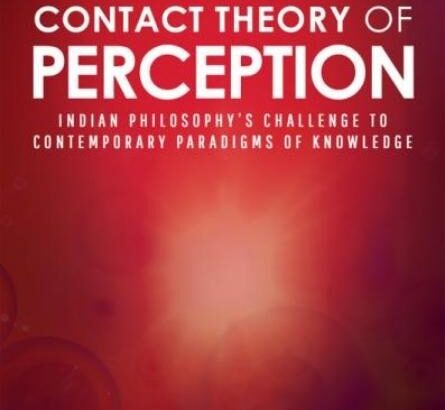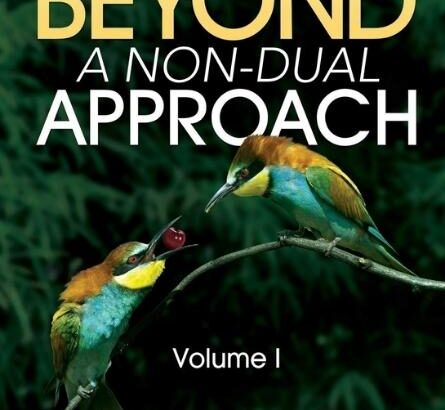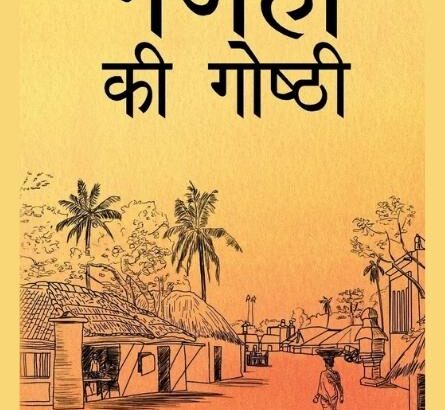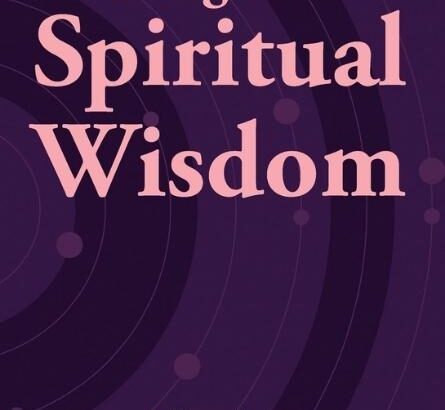Vakkeli, is a compilation of Arun Vemuri's micropoems (and few long ones) that were written over the last 5 years.These micropoems to present the culture, cuisine, cinema, patriotism, personalities are theme based and are written in a rhythmic, alletorial and rhyming 4 lines. It is Vakkeli's intent and endeavor to contribute his bit to revive poems once again as a meaningful and playful form of expression - drawing inspiration from the immortal lines of the revolutionary poet Sri Sri "Kukkapilla Sabbubilla kaadedii kavita kanarham"; and from the playful pen of the towering lyricist Shri Veturi.
Book Category: Indica Books

Natural Realism and Contact Theory of Perception
If you were told that we perceive the world directly without the causal intervention of the physical brain, or that we see the distant stars instantaneously without their light having to reach our sense organs, would the idea sound incredible to you?
Farfetched as it may seem, this idea, the author argues, comes from the time-tested contact theory of perception. Upheld by the Indian philosophical tradition for over 2000 years, it unfolds a definitively coherent process of perception, unlike the stimulus-response theory of perception espoused by empirical science which suffers from a host of logical inconsistencies. The contact theory of perception is a paradigm-changing theory and it has the potential to take us to a domain of knowledge beyond science and to cause a radical transformation in the way we look at the universe we live in.
Although a serious philosophical work, the language and lucid style of the presentation should appeal to a wide spectrum of people - from academic philosophers to curious aspirants. If philosophy or the philosophical traditions of India interests you, you cannot afford to ignore this book. But be forewarned: it will challenge the deep-rooted ideas that have become integral to your personal consciousness!

Journey Beyond A Non-Dual Approach
In this book Sadaji encapsulates the wisdom of Advaita Vedanta following the teachings of his Guru, Sri Gurudev Swami Chinmayandaji.
The introduction to the book is written by Dr K Aravinda Rao, former DGP and a scholar and author of Advaita who commends – “The book presents a panoramic picture of seekers from different cultural, social and intellectual backgrounds. There are answers to different levels of students. Sometimes the student is a novice, sometimes experienced or argumentative or sometimes confused. Dr Sadananda however, has untangled such confusion and has given replies.”
In his foreword, Swami Dheerananda of Chinmaya Mission Washington Regional Centre writes – “The author elaborated on the practical ways to approach ultimate awakening through Attentive Listening (Shravana), Active Reflection (Manana) and Meditation (Nididhyasana). This book provides a means for Nididhyasana-contemplation upon the Truth”.
The book covers a wide compendium of spiritual knowledge, written in a simple and lucid manner that would appeal to both students and scholars alike. Indic Academy is pleased to publish this book.
The book will be launched by Swami Advayananda ji at the inaugural session of the forthcoming conference on Oneness being organised by Indic Academy and Chinmaya Vishwa Vidyapeeth on 15th October 2019.
Indic Academy has recently launched a publication division. This book is the 7th title to be published.
An extract from the book is reproduced below :
Chapter 190 – Inaction in Action (pg 276)
When the shoe fits, the foot is forgotten;
When the belt fits, the waist is forgotten;
When all things are in harmony, the ego is forgotten.
Of what use then are your austerities?
Sadananda: Austerities are there to make sure that the shoe fits the foot, the belt fits the waist, and everything is in harmony so that ego can be forgotten! Until then austerities help!
Q: Per the Bhagavad Gita, Ch. VI, Verse 3, every austerity that is performed requires some amount of physical, mental and intellectual action. For a muni or sage who wishes to attain yoga, action is said to be the means; for the same sage who has attained yoga, inaction (quiescence) is said to be the means.
Sadananda: True. Here, inaction does not mean that there is no action.
The sage will be acting more dynamically and efficiently than any egocentric person. At the same time he will not have the notion that he is the actor. He does not act, but action goes on efficiently through him. Krishna says, “yogaH karmasu koushhalam” − “Dexterity in action is yoga.”
Q: But the saint knew nothing of this because the attention of people was so centered on the shadow that they forgot about the man. So his wish that good be done through him and that he be forgotten was abundantly fulfilled.
Sadananda: Beautiful story. Reminds me of the story of Bhagavan Ramana Maharshi. A lot of miracles were attributed to his presence, but he knew nothing of those.

Ganjhon Ki Goshthi
This collection of contemporary satirical essays in Hindi is a way of author to look at the current socio-political scenario and an attempt to recreate the magic of Hindi satire once visible in the world of Sharad Joshi, Shrilal Shukl and Harishankar Parsai. The author takes a dig at the inconsistencies of the modern world, modern value systems and modern politics, waltzing around with fictional heroes from the past. You have characters from Rag Darbari wandering about, Emperor Ashok landing in Karnataka post elections and even legendry writer Sharad Joshi himself coming out of retirement to get his satire published. The attempt of author is to create an outrageously funny world without ever losing the grace, dignity and beauty of language, cautiously and carefully avoiding the smattering of Hinglish and cuss-words modern Indian satire and homour space is infamous for.

Thoughts of Spiritual Wisdom
Openany page of this book of 365 Thoughts of Spiritual Wisdom, and you will drift into a cornucopia of various voices from towering scholars of spirituality speaking from personal experience.

